How to Fix Nvidia Windows has stopped this device because it has reported problems. (Code 43)
When the NVIDIA Code 43 error happens, your graphics card stops working, and shows an error message saying, “Windows has stopped this device because it has reported problems.” This error usually means there’s a problem with how Windows communicates to the graphics card. It often happens because of issues with software or hardware.
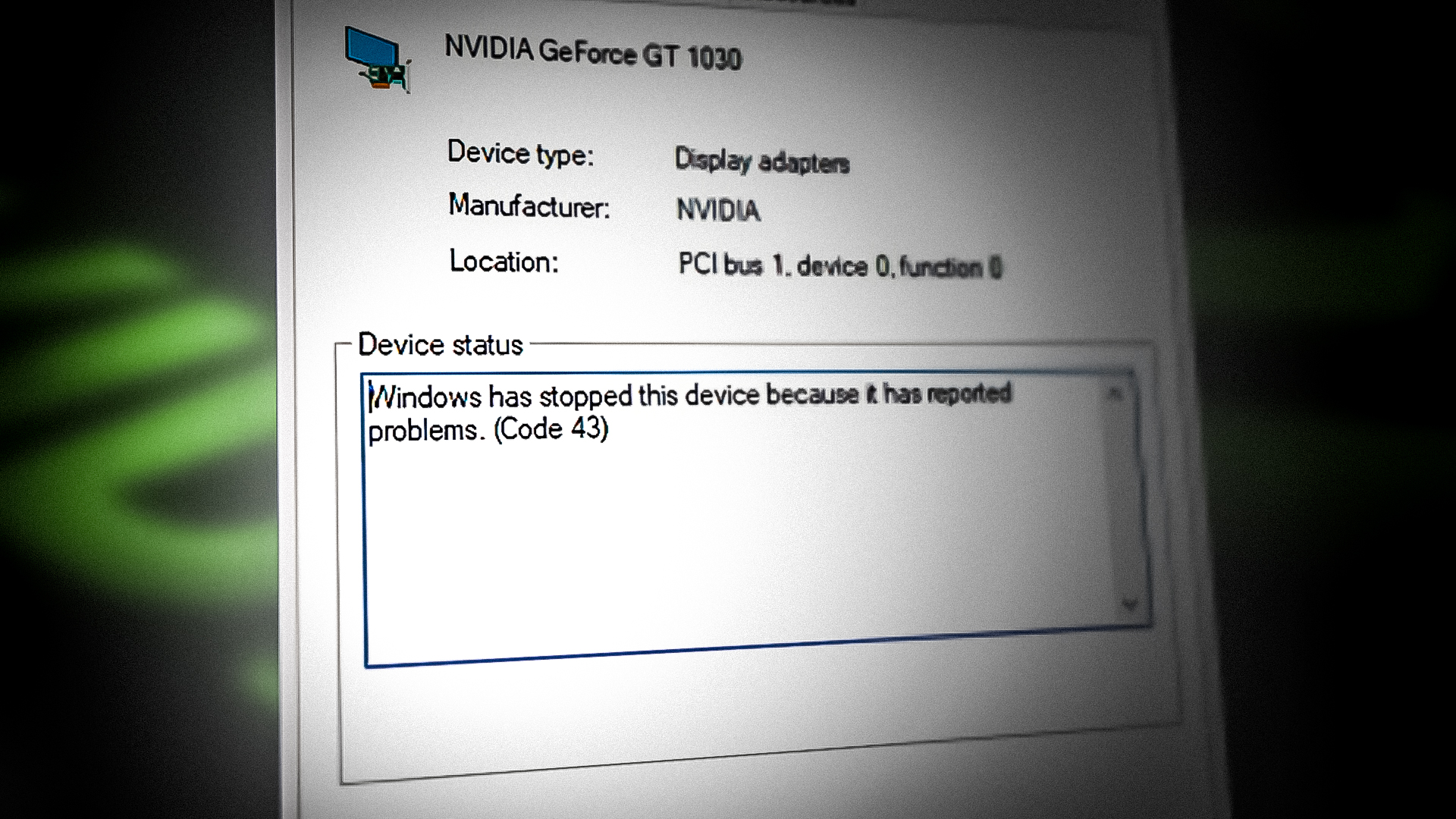
The most common cause is a driver problem, where the driver is old, damaged, or doesn’t match the hardware. Other possible reasons include broken hardware, problems with the power supply, or wrong BIOS settings. In this article we will discuss different solutions to solve this error.
1. Run a Batch File
Running the provided batch file fixes this problem by changing system settings that affect how Windows sees the GPU. It updates certain registry entries and settings, making sure the external GPU is correctly recognized and works well.
- Download the batch file from Here.
- After downloading, right-click and select Extract to nvidia-error43-fixer_113. Note: Use WinRar for extraction.
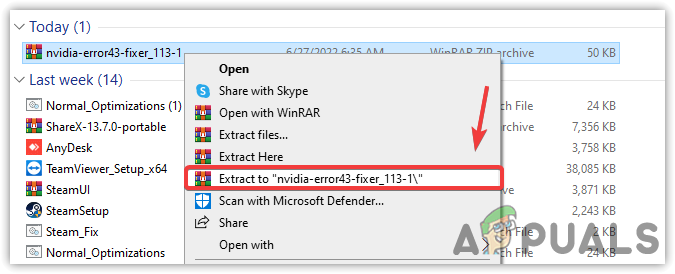
- Navigate to the extracted folder.
- Right-click on nvidia-error43-fixer and select Run As Administrator.
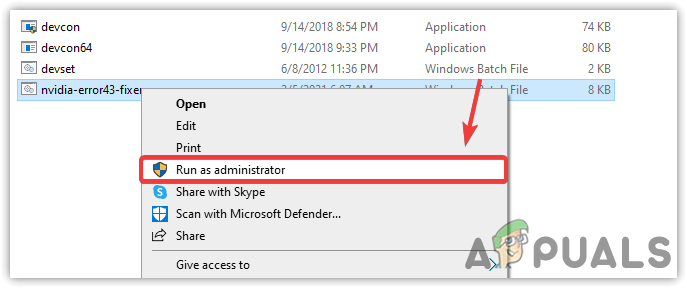
- After completion, close the terminal and verify if the error still exists.
2. Reinstall NVIDIA Drivers
When dealing with Error Code 43, reinstalling the NVIDIA drivers can restore proper communication between the operating system and your GPU. Corrupted or outdated drivers may cause the system to misinterpret the GPU’s functionality, triggering the error. Using a tool like DDU ensures that old driver remnants are removed, eliminating potential conflicts with the new installation. This step helps reset the driver environment and can resolve issues from incomplete or problematic driver updates.
2.1 Uninstall Graphics Driver
- Download the Display Driver Uninstaller (DDU) to completely uninstall the Graphics Driver.
- Boot Windows into safe mode as recommended by DDU: Click the Start Menu, then the Power button, and select Restart while holding the Shift key.
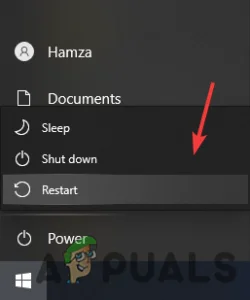
Restart Computer to Open Windows in Safe Mode - On the Windows options screen, navigate to Troubleshoot > Advanced options > Startup Settings.
- Click Restart at the bottom right to boot into safe mode.
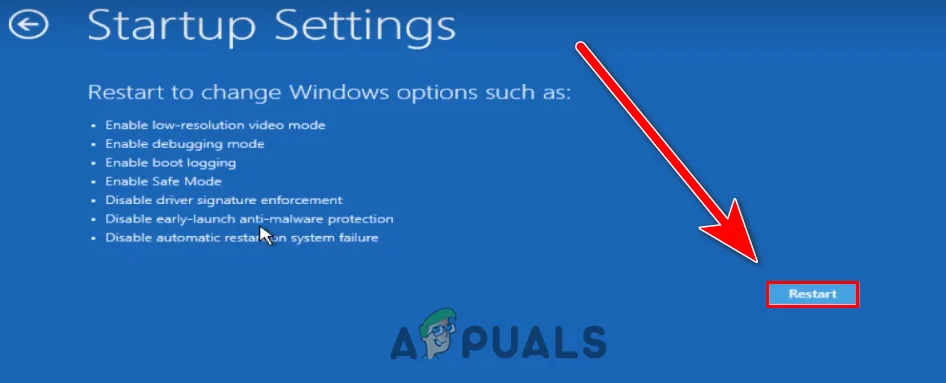
Restarting Computer - Navigate to the downloads directory, right-click the zip folder, and select Extract to [Guru3D.com]. Note: Use WinRar for this extraction.
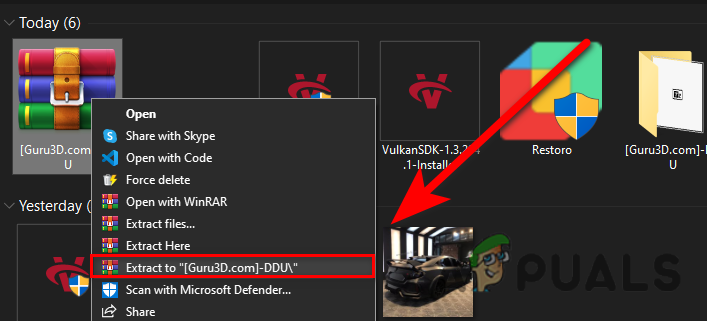
Extracting DDU Zip Folder - Open the extracted folder and double-click DDUv18.0.4.9.
- Click Extract when the window pops up.
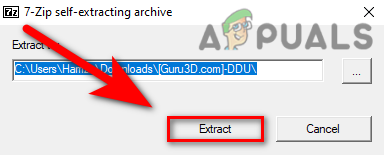
Extracting DDU Application - Go to the extracted folder and launch the DDU application.
- Select your device type and the respective GPU vendor.
- Click Clean & Restart to complete the uninstallation.
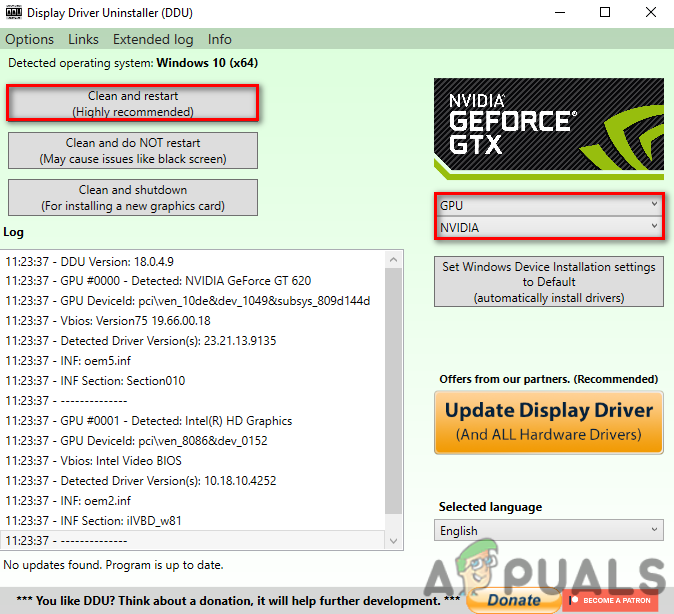
Selecting Graphics Card Driver For the Uninstallation Process
2.2 Install Graphics Driver
- Visit your GPU manufacturer’s website to install the latest graphics driver.
- Select your Graphics Card specifications and click the Search button.
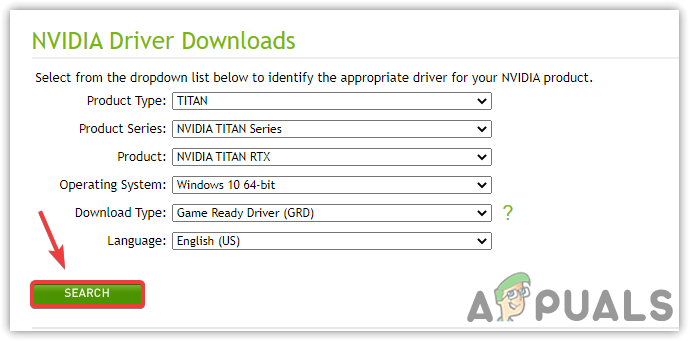
Searching For Latest Graphics Drivers - Click Download to begin downloading the drivers.
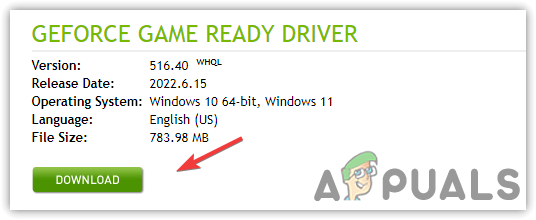
Downloading Graphics Driver - Run the installer and follow the instructions to install the drivers.
- Restart your computer to apply the changes.
- Check the device manager to ensure the error is resolved.
3. Check Legitimacy of Nvidia Card
If the issue persists, check the legitimacy of your Nvidia card. If the card is fake, the error may continue until you replace it with a genuine one. To verify your card, install GPU-Z, an application that provides essential graphics card information. If your card is fake, GPU-Z will display a yellow warning with “[FAKE]” before the model name.
- Download GPU-Z to verify your graphics card’s legitimacy.
- Install the software by opening the installer and following the prompts.
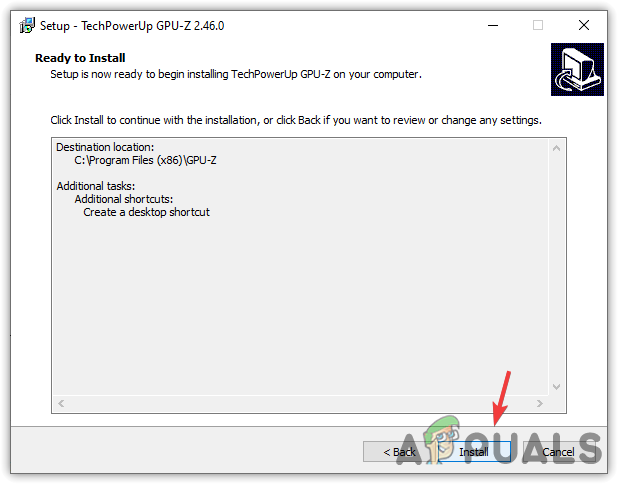
Installing GPU-Z - Launch GPU-Z and check the details to confirm your graphics card is legitimate.
4. Disable Automatic Driver Updates from Windows
To prevent driver conflicts causing Error Code 43, manage automatic updates from Windows. Conflicts occur if Windows installs outdated drivers. You may disable updates in the Local Group Policy Editor, but proceed cautiously to avoid missing important updates. Regularly check and install the correct driver versions.
If you’re using Home edition of Windows, install Group Policy Editor first.
- Press Windows + R, type gpedit.msc, and press Enter to open the Local Group Policy Editor.
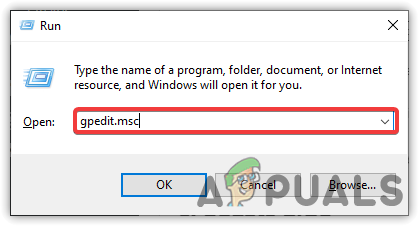
Launching Local Group Policy Editor - Navigate to:
Computer Configuration > Administrative Templates > Windows Components > Windows Update
- For Windows 11, expand Windows Update and click on Manage updates Offered From Windows Updates.
- Double-click on Do not include drivers with Windows Update.
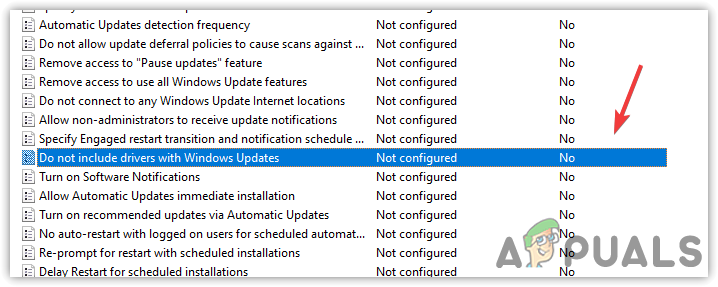
Open Driver Setting - Select Enabled and hit Apply.
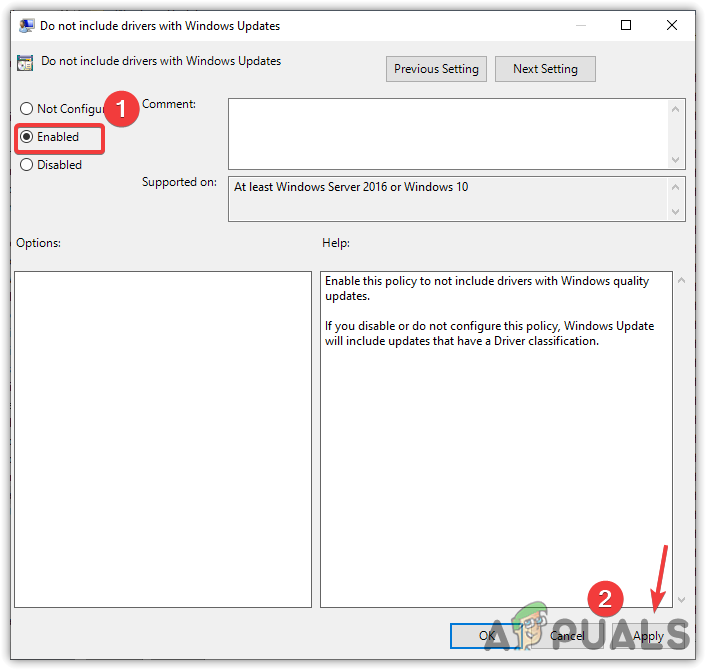
Preventing Drivers From installing With Windows Updates - Reinstall the drivers using the previous method.
5. Update BIOS
If your system’s firmware is outdated, it may have trouble communicating with modern hardware like your NVIDIA graphics card. Updating the BIOS helps your motherboard properly recognize and manage connected devices, including your GPU.
Learn how to update the BIOS.
6. Run SFC and DISM Commands
This issue might be caused by corrupted or missing system files. An effective way to repair them is by running the SFC (System File Checker) and DISM (Deployment Image Servicing and Management) commands. These commands scan and repair any corrupt files within the operating system. SFC focuses on fixing damaged files directly, while DISM ensures the Windows image itself is intact.
- Open the Start Menu and type Command Prompt.
- Right-click on Command Prompt and select Run As Administrator.
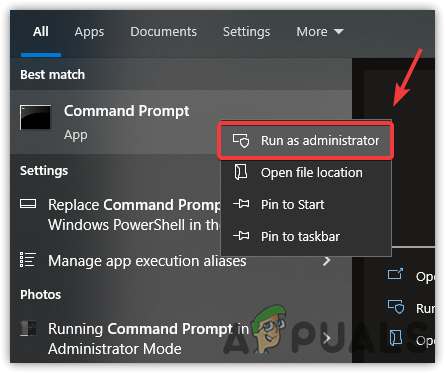
Running Command Prompt As Administrator - Run these commands one by one, pressing Enter after each:
sfc /scannow
DISM /Online /Cleanup-Image /RestoreHealth
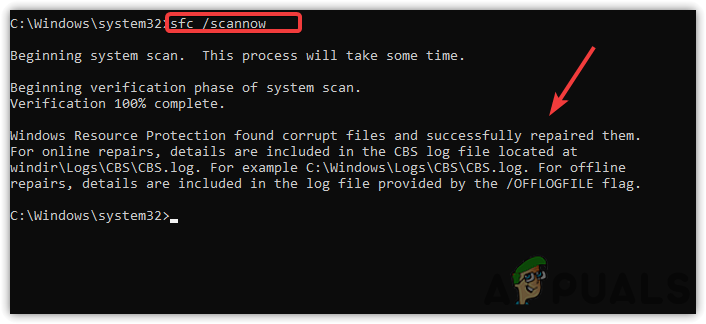
Repairing Corrupted Files - Check the Device Manager to see if Error Code 43 still occurs.
7. Perform a System Restore
If none of the solutions work, performing a System Restore is recommended. This process reverts your system to a previous state before the issue occurred, effectively undoing recent driver updates or changes without affecting your personal files.
- Press Windows + R, type rstrui, and press Enter to open the restore settings.
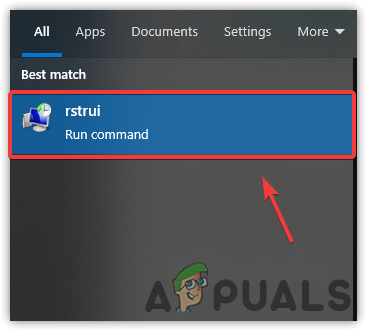
Launching System Restore Settings - Select a restore point and click Next.
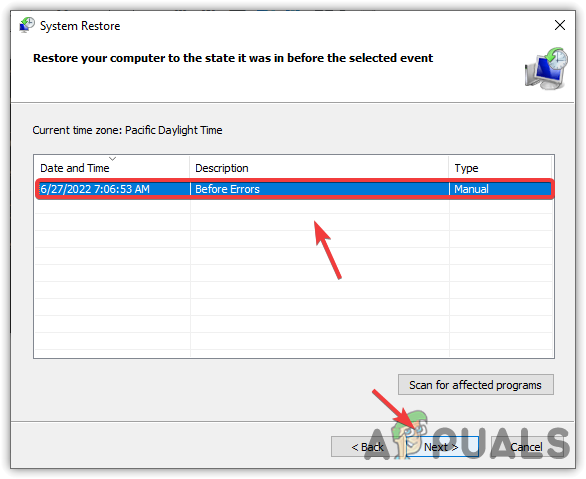
Selecting Restore Point - Click Finish to start the restore process.
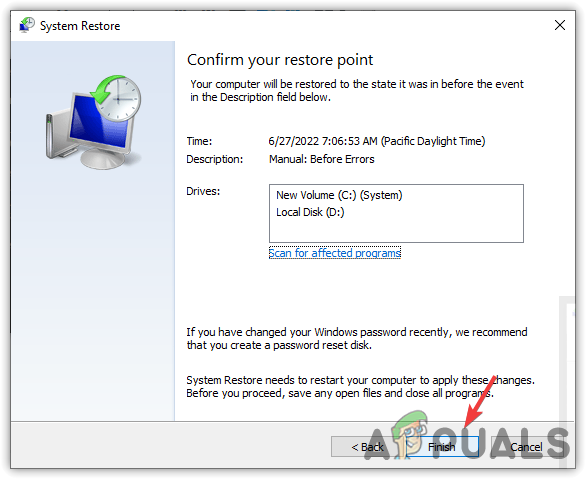
Click Finish To Proceed
8. Uninstall VIRTU MVP Application (if applicable)
The VIRTU MVP Application helps optimize computers for gaming by providing faster response times, better video processing, and smoother media playback. However, Nvidia does not support this application, which may lead to Error Code 43. Uninstalling the software could help resolve this issue.
- Press Windows + R, type appwiz.cpl, and press Enter.
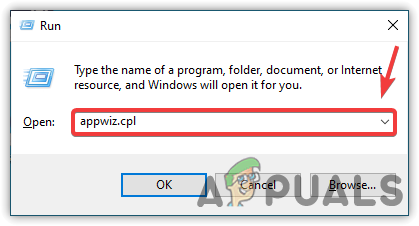
Inserting Command - Locate the VIRTU MVP application and right-click on it.
- Choose Uninstall from the options.

Inserting Command - After uninstallation, check to see if the error persists.